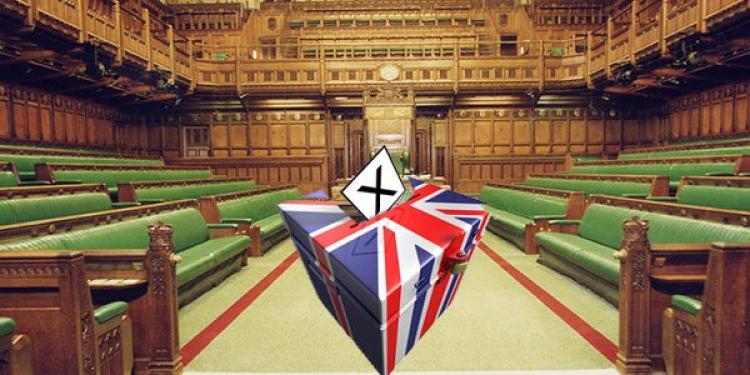Prediction Professionals Won’t Wager On A Winner
Posted: February 27, 2015
Updated: October 6, 2017

Dubbed the “lottery election” the vote on May 7th to choose the next government of UK has become almost frighteningly unpredictable
When the Conservatives and Liberal Democrats went into a coalition government together it was one of very few times that a British political party had ‘won’ an election and then had to share power with anyone. Traditionally you could go to bed election night gambling news of the result would be of a Labour or Conservative win the next morning, the third party in British politics up till that point of little or no relevance save as a tactical vote. Nowadays? Not so much.
Your Guess Is As Good As Theirs
• Professional pundits left clueless
• Election result completely unpredictable
• Conflicting odds at bookmakers
Of course when David Cameron and Nick Clegg stood in the garden together like star crossed lovers we were not to know just how much the latter had sold his soul to the former, and whilst that has pretty much damned the Liberal Democrats to a desperate decline in support and the electoral chances approximately the same as a full scale alien invasion of Earth, a whole host of small parties have risen up and doomed the country to an election no one can predict.
The widely regarded and hugely respected Political Forecasting Unit at Nottingham Business School has all but thrown up its hands in despair as the data comes in, and when asked who’ll win the election their director, Leighton Vaughan Williams, has to admit “The simple answer is nobody. It’s very, very unlikely that any party will get a majority.” Adding; “Indeed it is very, very unlikely any two parties can put together a majority after the election.”
It is this that keeps the corridors of power paced worriedly into the wee small hours, the specter of another, even more complex, casting it’s shadow over the entire race. The traditional parties are facing a squeeze from all sides, their voters being lured away by new populist parties and manifestos, their images tarnished and faded, their core support dwindling dangerously below the level necessary to achieve an overall majority.
Small Parties Could Make A Big Noise
The slump in Liberal Democrat votes is so massive that it may take it below the support of other minor parties that have grabbed the limelight of late. The Greens stand to gain from disappointment in Nick Clegg, although their leader Natalie Bennett fluffed her manifesto launch on LBC radio unable to answer basic costing questions concerning her policies, but could they get enough support to be king maker in the parliament after May? This remains to be seen.
The Greens also threaten to take away voters from Labour, although for the hapless Ed Milliband it’s probably the SNP that worries him more. The SNP has had a surge in support since the loss of the independence for Scotland referendum, the Conservative government in Westminster dragging their feet on their promises specifically to assist the SNP take voters and seats from Labour north of the border. Without those seats Ed Miliband could find himself with no hope of winning.

The Conservatives meanwhile have their own problems, not only with coalition partners the Liberal Democrats trying to distance themselves from some of the more ghastly conservative policy mistakes, but also from the new political force in the UK; UKIP. The United Kingdom Independence Party is the pet project of Nigel Farage a Euro MP who wants the UK out of Europe. His lack of geographic understanding aside this is possibly the most dangerous aspect of the election.
With policies that can only be supported by the ignorant, the fearful and the misinformed, UKIP’s manifesto is dominated by a desire to limit immigration into the UK and the UK’s integration into Europe. Anyone in the UK gambling laws on immigration made by UKIP would suddenly cure the nations economic misfortunes is seriously lacking in intelligence, as believing the skewed misrepresentations of UKIP‘s leader, nasty Nigel, ably demonstrates.
Odd Odds On Offer
Of course with the pollsters and professional prediction posse left baffled and unable to tell us the likely results with any accuracy at all many of us have turned to Online sportsbooks in UK like Bet365 t o see which way the wind is blowing. This exercise, however, tends to provide more questions than answers, as the bookies seem a little at a loss themselves as to know what’s going to happen, and that’s quite rare.

Bet365, for instance, offers 4/7 on the Conservatives winning the most seats but put Labour ahead on just 13/10, however you can only get 5/4 on Ed Miliband being the Prime Minister after the election with 4/7 on Cameron still being PM on May 8th. This mixed message says it all, and with no overall majority a 1/5 certainty, the odds on the next government and who is might comprise are, to say the least a little worrying.
A Conservative/UKIP coalition is just 22/1 which is truly scary, a Labour/SNP coalition a tad more likely on 6/1 and the current Conservative/Lib Dem team up sits at 4/1. You could take the 9/2 bet on either a Labour or Conservative minority government but if British political parties could stomach that the Liberal Democrats wouldn’t have had to prostitute themselves quite so much over the last five years as David Cameron’s prison bitch.
John Curtice, the Strathclyde University political scientist who coined the term “lottery election” in the first place, has stated that “the 2015 election looks less like a simple battle between two straightforward alternatives than any of its post-war predecessors.” Which is perfectly true, because right now with no party capturing the imagination of the voters turn out is destined to be low, and that means, as the bookies and pundits make clear, as with Bitcoin Bingo, anything could happen.












